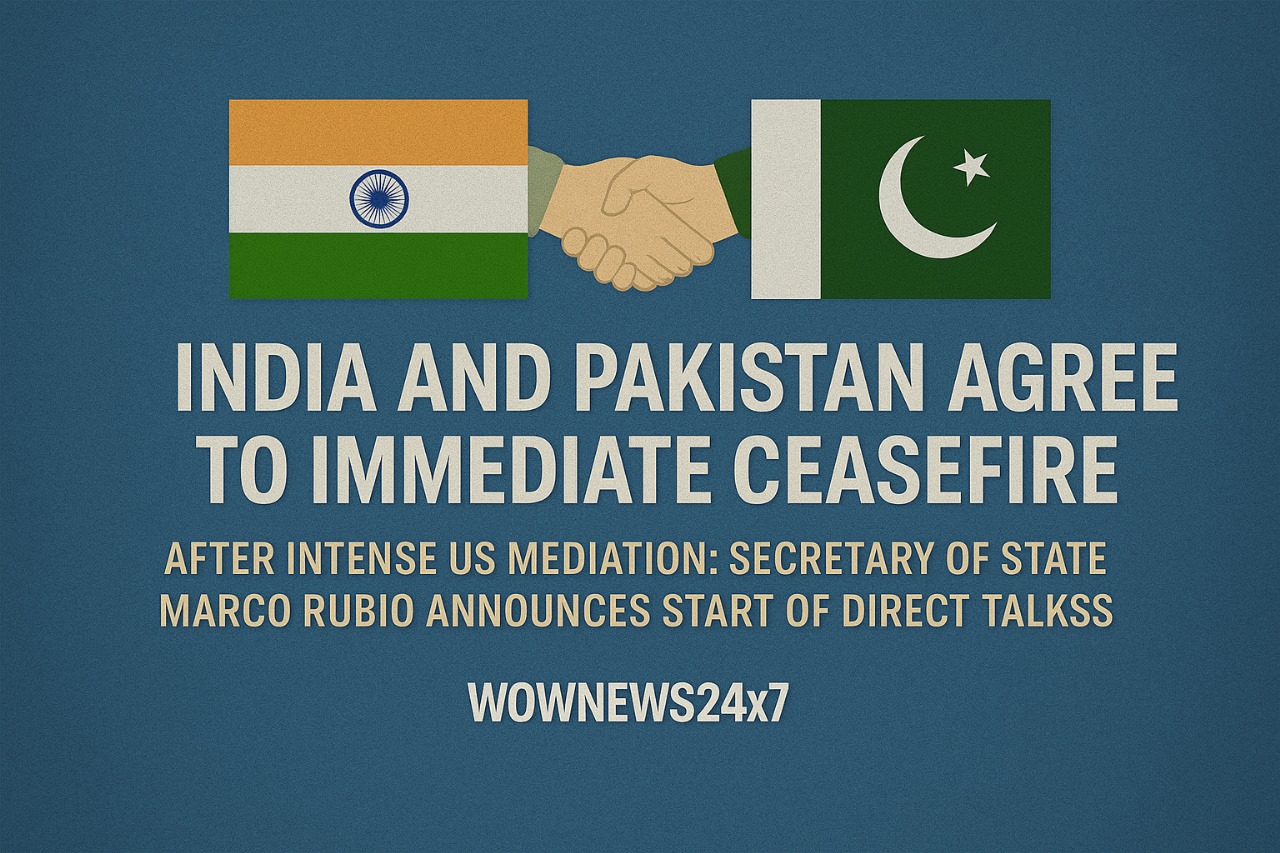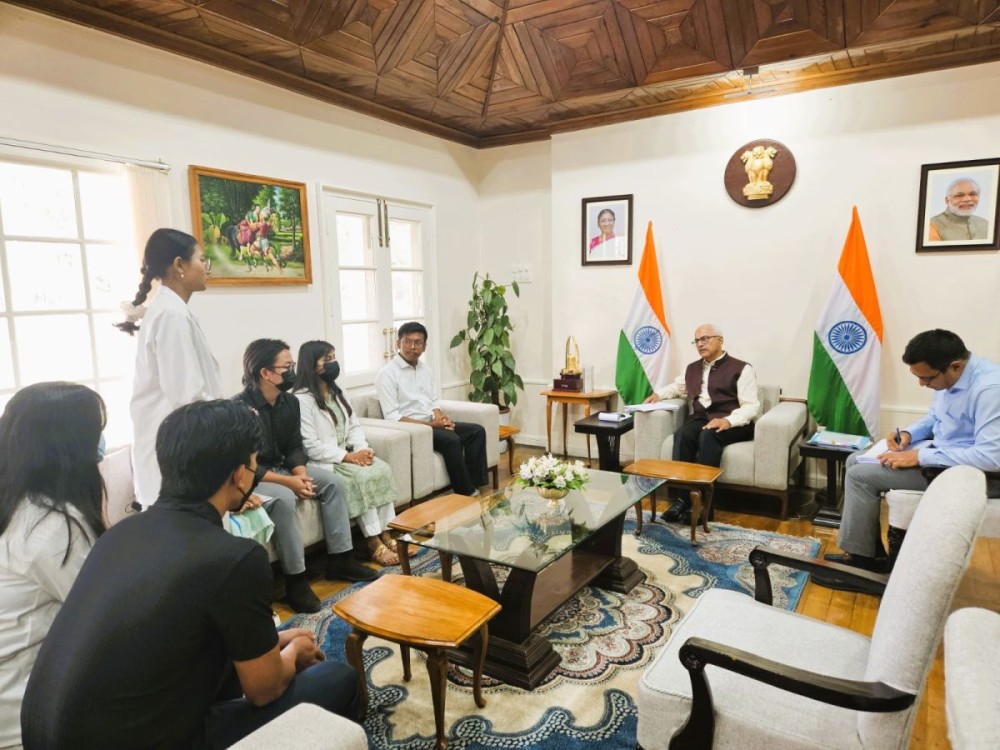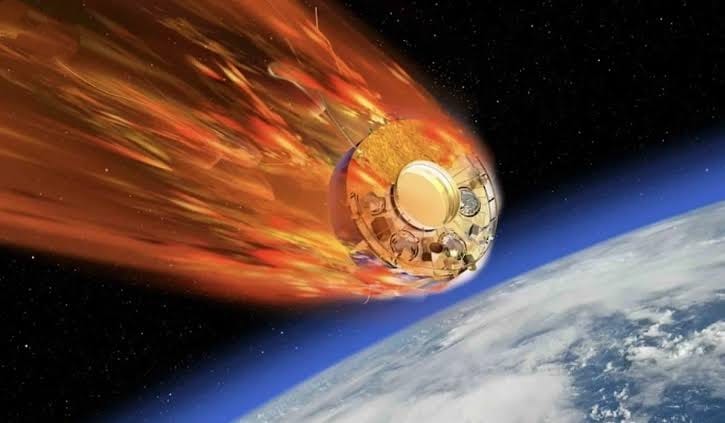In a dramatic diplomatic breakthrough, US Secretary of State Marco Rubio announced on Saturday that India and Pakistan have agreed to an immediate ceasefire and will soon begin direct talks on a broad set of issues at a neutral site. The announcement comes after 48 hours of high-stakes engagement by Rubio and Vice President JD Vance with senior officials from both countries, marking a significant step toward de-escalation in one of the world’s most volatile regions.
Ceasefire Agreement Reached:
Secretary of State Rubio, in a social media statement, confirmed that after two days of intensive dialogue with Indian and Pakistani leaders-including India’s External Affairs Minister S. Jaishankar and Pakistan’s Prime Minister Shehbaz Sharif and Army Chief Asim Munir-both sides have agreed to an immediate cessation of hostilities.
Start of Direct Talks:
Rubio further announced that the governments of India and Pakistan have committed to begin discussions on a “broad set of issues” at a neutral location. The talks are expected to address not only the immediate security situation but also long-standing disputes and mechanisms for future crisis management.
US Diplomatic Engagement:
The US played a central mediating role, with Rubio and Vance engaging directly with top officials from both countries. President Trump also lauded the agreement, stating, “Kudos to both nations for exercising sound judgment and exceptional wisdom. I appreciate your focus on this issue!”
International Calls for Peace:
The announcement follows days of escalating military conflict, including cross-border strikes and retaliatory actions, which had raised fears of a broader war. The US, EU, Iran, and Saudi Arabia have all been urging restraint and dialogue.
Indian and Pakistani Responses:
While official confirmation from New Delhi and Islamabad was awaited at the time of the announcement, Indian External Affairs Minister S. Jaishankar emphasized India’s “measured and responsible” approach in his call with Rubio, reiterating India’s commitment to de-escalation and direct communication. Pakistan’s Foreign Minister Ishaq Dar stated that Islamabad would halt further action if India did the same, expressing a desire for peace “not dominated by any single nation”.
Background to the Crisis:
The ceasefire follows a sharp escalation after India’s “Operation Sindoor” targeted terror camps in Pakistan and Pakistan-occupied Kashmir in retaliation for the Pahalgam terror attack. Pakistan responded with strikes on Indian military sites, leading to the most intense military confrontation between the two nuclear-armed neighbors in years.
US Offers Continued Mediation:
Rubio has offered ongoing US support to facilitate “productive discussions” and help both sides avoid future conflicts, stressing the need for direct communication channels and de-escalation mechanisms.
“We applaud Prime Ministers Modi and Sharif for their insight, careful judgment, and leadership in opting for a peaceful resolution,” Rubio said, highlighting the importance of statesmanship in averting further bloodshed.
With the ceasefire now in effect and talks set to begin, the world watches closely, hopeful that this diplomatic opening will pave the way for lasting peace and stability in South Asia.
Source: Al Jazeera, Hindustan Times, CNN, Anadolu Agency, India TV News, Times of India, Rediff
Advertisement
Advertisement






